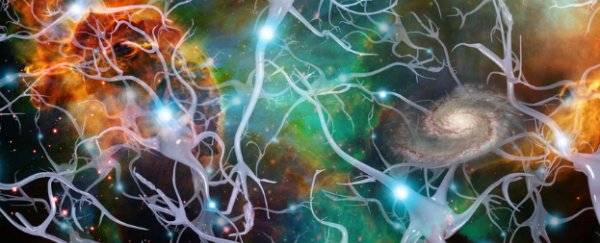Researchers from McGill University Health Centre in Canada have identified a molecule that seems to stop the brain from storing memories - and by suppressing it in mice, they've managed to unlock super-memory in the animals and improve neuro-functioning.
The molecule is FXR1P (or Fragile X Related Protein 1), a protein that belongs to a family of molecules that are involved in the brain forming new connections - the process that's essential for memories being locked in.
Researchers already know that in order for memories to form, certain molecules need to be produced in the brain, and if that doesn't happen, then we can't remember an event.
But the new study is the first to suggest that FXR1P could actually be putting the brakes on the memory formation process.
"Our findings show that the brain has a key protein that limits the production of molecules necessary for memory formation. When this brake-protein is suppressed, the brain is able to store more information," said Keith Murai, a neurologist and the lead researcher, in a press release. The results are published in an open access paper in Cell Reports.
To investigate how FXR1P could stand in the way of us having unlimited memories, the team removed the protein from certain parts of the mouse brain, and found that in those regions, the molecules required for weaving new memories were produced in large amounts, and this resulted in better memory and recall for the mice.
"The role of FXR1P was a surprising result," said Murai in the release. "Previous to our work, no one had identified a role for this regulator in the brain. Our findings have provided fundamental knowledge about how the brain processes information. We've identified a new pathway that directly regulates how information is handled and this could have relevance for understanding and treating brain diseases."
Although the most obvious benefits of this research are to help regular, forgetful people like me unlock ALL the memories, there are some more important applications of the study - for example, helping people with Alzheimer's and other neurodegenerative disease to form lasting memories, as well as potentially treating those with autism spectral disorders.
In theory, controlling FXR1P could help scientists to alter neuroplasticity - or the ability for a brain to change, heal, grow and respond to new information.
"If we can identify compounds that control the braking potential of FXR1P, we may be able to alter the amount of brain activity or plasticity," said Murai in the press release.
"For example, in autism, one may want to decrease certain brain activity and in Alzheimer's disease, we may want to enhance the activity. By manipulating FXR1P, we may eventually be able to adjust memory formation and retrieval, thus improving the quality of life of people suffering from brain diseases," he added.
Further research is now needed to work out whether FXR1P plays the same role in humans as it does in mice. If it does, then one thing's for sure - I probably have too much of it. And in the meantime, if scientists could work out where I put my keys, I'd be eternally grateful.
